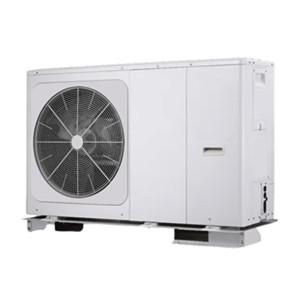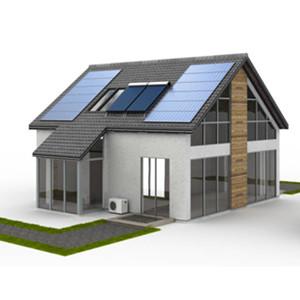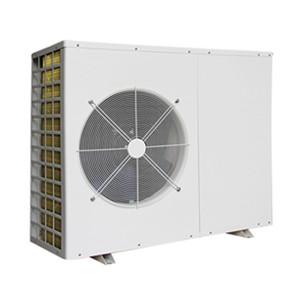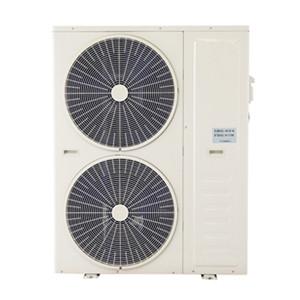Advantages and Disadvantages of Air Source Heat Pumps
If you're shopping for a heat pump for your home or office, you should
know the pros and cons of the device. A heat pump can be an excellent
investment for your home or office when you know how to choose the right
equipment. Heat pumps use a compressor and liquid or gas refrigerant to
transfer heat from one place to another. Heat is usually extracted from
outdoors and pumped indoors by heat pumps.
Heat pumps consume less electrical energy than traditional methods of
converting electrical energy into heat. This cycle can be reversed in summer.
It acts as an air conditioner during hot and humid summer. Heat pumps are
versatile and beneficial for your home or office. This article provides
information on the many advantages and disadvantages of heat pumps.
Advantages of heat pumps: 1. Reduced maintenance. 2. Reduce operating
costs. 3. Reduce carbon emissions.
4. Security features. 5. Durability. 6. Heating and cooling. 7. RHI
Program Compliant.
Disadvantages of heat pumps: 1. Difficult to install. 2. High upfront
costs. 3. Reduce carbon emissions.
4. Security features. 5. Insulation treatment. 6. Not 100% carbon
neutral. 7. Planning and Installation Licensing

Advantages of heat pumps
1. Reduce maintenance
Compared to other heating systems on the market, heat pumps require
professional maintenance every 3-5 years. Homeowners can easily complete
certain inspections themselves. When you invest in a heat pump for your home or
office, you save on maintenance costs.
2. Reduce operating costs
Heat pumps are less expensive to run than combustion-based systems. The
higher the energy efficiency of the system, the greater the long-term energy
savings. While a ground source heat pump can even cost as much as £45,000, this
friendly and environmentally friendly investment can help you save up to £1,400
a year.
3. Reduce carbon emissions
Over time, a heat pump will reduce your carbon footprint. It converts
energy into heat very efficiently compared to other heating systems. For
example, water-based heat pumps are at least 600% more efficient than other
heating systems on the market today.
4. Safety Features
Heat pumps are safer than combustion-based heating systems. They operate
safely and because they run on electricity and don't need to burn fuel to
generate heat, they have fewer safety concerns than their counterparts.
5. Durability
With the right type of maintenance, a heat pump can easily run for more
than five years. They provide a reliable and stable heat source.
6. Heating and cooling
A heat pump heats your home during cold periods and reverses the process
during warm periods. In hot and humid summer, it will work like an air conditioner
unit.
7. RHI Program Compliant
When you invest in a heat pump for your home or office, you are eligible
for discounts under the Renewable Heat Incentive (RHI) program. This program
helps homeowners and business owners install renewable heating systems in their
homes and offices.
Disadvantages of heat pumps
1. Installation is difficult
The installation of a heat pump can be quite difficult considering the
research that must be done to understand the movement of heat, the local
geology, especially the ground source heat pump, and your home's heating and
cooling requirements.
2. High upfront costs
The initial investment in a heat pump is much higher than investing in
other heating systems for your home or office. But in the long run, operating
costs translate into long-term savings. By investing in a heat pump, you will
save on energy bills and reduce your carbon footprint on the planet.
3. Sustainability issues
The sustainability of some fluids used for heat transfer is questionable
and thus raises environmental concerns, so biodegradable fluids are
recommended.
4. Inefficiency in cold weather
Some heat pumps experience various problems in extremely cold weather
conditions. In this case, they may not function fully. Extreme cold weather can
damage some heat pump components. That's why you need to invest in the right
product based on the weather conditions in your area.
5. Thermal insulation
The water temperature that the heat pump can provide is generally 60°C,
which is not high, so it is more suitable for floor heating, and it requires
the house to be insulated to improve efficiency.
6. Not 100% carbon neutral
Heat pumps run on electricity. Therefore, these systems are not 100%
carbon neutral. Solar power is the best choice for heat pumps as it is an efficient
carbon-free model. Heat pumps should be used in conjunction with solar panels
for optimal environmental benefit.
7. Planning and Installation Licensing
Homeowners need permission from the local authority to install heat
pumps in certain areas.
Are heat pumps worth the investment?
In the long run, the investment in a heat pump is small compared to its
many benefits. You save on energy bills and they are more environmentally
friendly compared to other heating systems on the market. This is why you need
to invest in a heat pump without delay.





